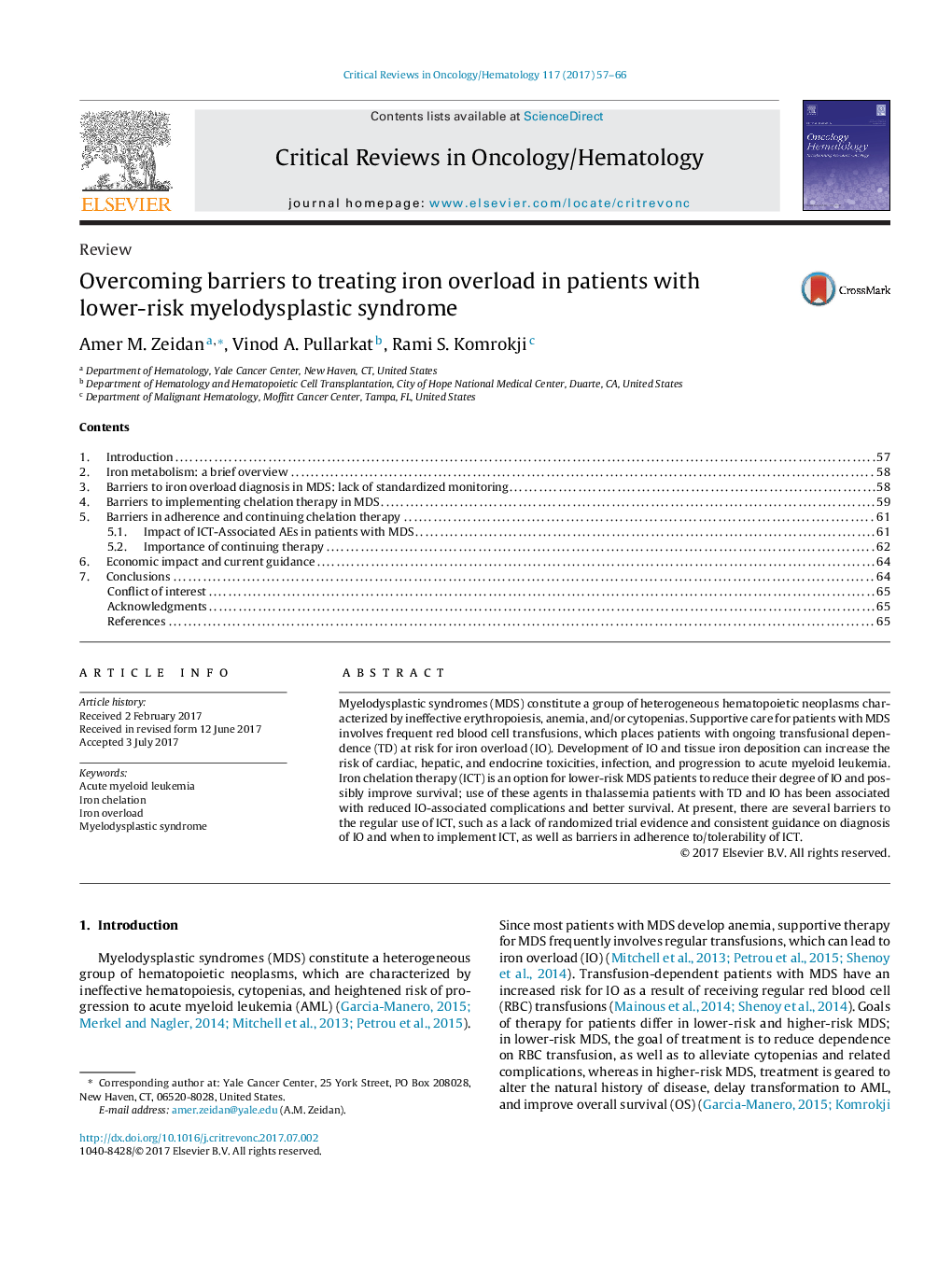| Article ID | Journal | Published Year | Pages | File Type |
|---|---|---|---|---|
| 5664031 | Critical Reviews in Oncology/Hematology | 2017 | 10 Pages |
â¢Patients with MDS and transfusional dependence are at risk for iron overload (IO).â¢IO can increase the risk of organ toxicities, infection, and progression to AML.â¢Iron chelation therapy (ICT) may reduce the degree of IO and improve survival.â¢Barriers to regular use of ICT include patient adherence and drug tolerability.â¢Patient education may improve adherence to ICT and decrease complications from IO.
Myelodysplastic syndromes (MDS) constitute a group of heterogeneous hematopoietic neoplasms characterized by ineffective erythropoiesis, anemia, and/or cytopenias. Supportive care for patients with MDS involves frequent red blood cell transfusions, which places patients with ongoing transfusional dependence (TD) at risk for iron overload (IO). Development of IO and tissue iron deposition can increase the risk of cardiac, hepatic, and endocrine toxicities, infection, and progression to acute myeloid leukemia. Iron chelation therapy (ICT) is an option for lower-risk MDS patients to reduce their degree of IO and possibly improve survival; use of these agents in thalassemia patients with TD and IO has been associated with reduced IO-associated complications and better survival. At present, there are several barriers to the regular use of ICT, such as a lack of randomized trial evidence and consistent guidance on diagnosis of IO and when to implement ICT, as well as barriers in adherence to/tolerability of ICT.
